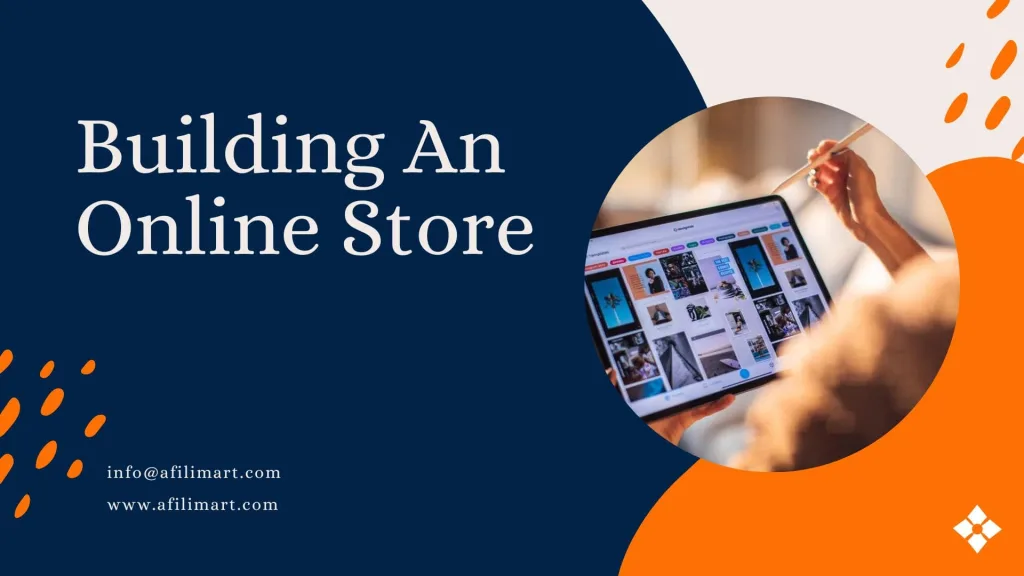Traditional Market
A traditional market is a place where people can buy and sell goods and services in person. Traditional markets can take various forms, including open-air markets, street markets, and indoor markets. They are often found in busy public areas or in the centre of towns and cities, and they are a popular destination for locals and tourists alike.
Traditional markets often have a distinct atmosphere and culture, with vendors selling a wide range of goods and services, from fresh produce and handmade crafts to clothing and household items. They can be a great place to find unique, locally made products and to support small businesses and local economies. Traditional markets can also be a source of community and social interaction, as people gather to shop and engage with each other.
E-commerce Platform
An e-commerce platform is an online platform that allows businesses to sell goods and services over the Internet. E-commerce platforms provide a range of features and tools to help businesses manage and grow their online sales, including the ability to create and manage an online store, process payments, track inventory, and handle shipping and returns.
There are many different e-commerce platforms available, ranging from simple, self-hosted solutions to more comprehensive, hosted platforms. Some common examples of e-commerce platforms include Shopify, WooCommerce, and Magento. These platforms can be used by businesses of all sizes, from small, independent sellers to large, multinational corporations. E-commerce platforms have made it easier for businesses to reach customers around the world and have greatly expanded the reach and scope of the global marketplace.
Traditional Market vs E-commerce Platform
Traditional markets and e-commerce platforms are two different ways of buying and selling goods and services. Traditional markets are physical places where people can go to buy and sell goods in person. E-commerce platforms are online platforms that allow businesses to sell goods and services over the Internet.
There are some key differences between traditional markets and e-commerce platforms:
Location: Traditional markets are physical locations, while e-commerce platforms are online and can be accessed from anywhere with an internet connection.
Convenience: E-commerce platforms are generally considered more convenient for both buyers and sellers, as they allow customers to shop from the comfort of their own homes and sellers to reach a global audience without the need for a physical storefront.
Selection: E-commerce platforms often have a larger selection of goods and services available, as they can be accessed from anywhere in the world. Traditional markets, on the other hand, are typically limited to the products and services available in a specific location.
Cost: E-commerce platforms may have lower costs for sellers, as they do not need to pay rent for a physical storefront and can reach a larger audience. However, buyers may pay higher prices on e-commerce platforms due to the convenience of online shopping and the added cost of shipping and handling.
Experience: Traditional markets can offer a more immersive and interactive shopping experience, as customers can see and touch the products and interact with vendors in person. E-commerce platforms may lack this level of personal interaction, but they can offer a more streamlined and efficient shopping experience.
Understanding the market is important for a business because it helps the business to make informed decisions about its products, pricing, marketing, and overall strategy. The market includes the customers, competitors, and economic conditions that the business operates in, and understanding these factors can help the business to better meet the needs and preferences of its target customers, differentiate itself from competitors, and navigate the economic environment in which it operates.
Here are a few specific ways in which understanding the market can benefit a business:
Identify customer needs and preferences: By understanding the market, a business can identify the needs and preferences of its target customers and develop products and services that meet those needs.
Determine pricing: Understanding the market can also help a business to determine the right pricing for its products and services. This includes understanding the prices of competitors, the cost of producing the product or service, and the willingness of customers to pay for it.
Develop marketing strategy: A business’ marketing strategy should be based on an understanding of the market, including the needs and preferences of customers, the competition, and the overall economic environment.
Make informed decisions: Understanding the market can also help a business to make informed decisions about its operations, such as whether to enter a new market, expand its product line, or change its business model.
Overall, understanding the market is essential for a business to be able to successfully navigate the business environment and achieve its goals.










